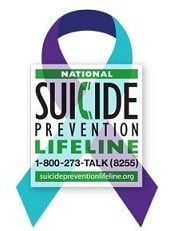The loss of a loved one through death can turn our world upside down. It can be a life-altering event not only because of the new emptiness in our lives, but also because we, too, can become a victim of the loss through depression and hopelessness.
Everyone endures the death of someone close at some time in their life, so many who have lived the experience will tell you it is hard, but survivable. Here are some suggestions to take care of yourself, which will help you through the grief and sense of loss.
Rest
Your body needs to sleep because of the emotional roller coaster you are on. However, death brings stress as well, and stress is the biggest enemy to rest. Try to keep to your daily routine so you will be tired at night. Walk the dog, take a stroll or read a book—whatever you normally do. You might be tempted to have an alcoholic drink to make you relax, however, alcohol will prevent you from having a quality sleep. Tobacco and caffeine can also impede rest. Don’t forget that caffeine is also in chocolate and many soft drinks. Don’t do strenuous tasks prior to bedtime because your adrenalin will keep you awake. Sometimes a high protein, high carbohydrate snack prior to going to bed can help you fall asleep more quickly. Rest and relaxation training can help, too. If you find yourself still struggling after three weeks, your doctor may wish to prescribe a sleep aid.
Eating
Your loved one is gone, but you are still here, and your body needs nourishment to survive. While it’s normal to have irregular eating patterns during the grieving process, try to make yourself eat, even if you’re not hungry. Protein diets can help reduce stress. You may even consider a multi-stress vitamin or B-vitamin. Potassium and calcium intake can help reduce stress, too. Try milk and cheese or bananas rather than junk food.
Activity
Consider doing something physical which is in the scope or your present health. Take a walk, go to the gym, maybe even go shopping in the mall. Do something to keep yourself physically moving. It will make you feel better overall, plus it will make you tired at the end of the day, thus enabling you to have a better chance of sleeping.
Treat Yourself Well
Grief has many steps to ascend until you work through the loss. Don’t beat yourself up. Instead, rather, treat yourself to outings and activities that can distract you from your sadness. It’s okay to be happy, even briefly. You are not betraying your loved one by enjoying your life. Some suggestions include:
- Dining out with friends.
- Dressing up, even if you’re not going anywhere. Sometimes just taking a bath makes us feel better.
- Practice/participate in your hobbies: movies, TV, sports, reading, interacting with your animals.
- Find outlets to discuss your loved one to allow yourself to be comforted. These may include your spiritual leader, friends, counselors, family members. You may find consolation in prayer or letter-writing.
- Schedule your day to include doing something nice for yourself. Include activities that let you achieve something rather than sitting idle at home. Grocery shopping, going to the post office, visiting a friend are some ideas. If you do find yourself at home, identify chores to accomplish each day.
- Visit the ill or help someone else.
Grief does not pass quickly, but it is survivable, and these suggestions can help you through the process in a healthy manner.






